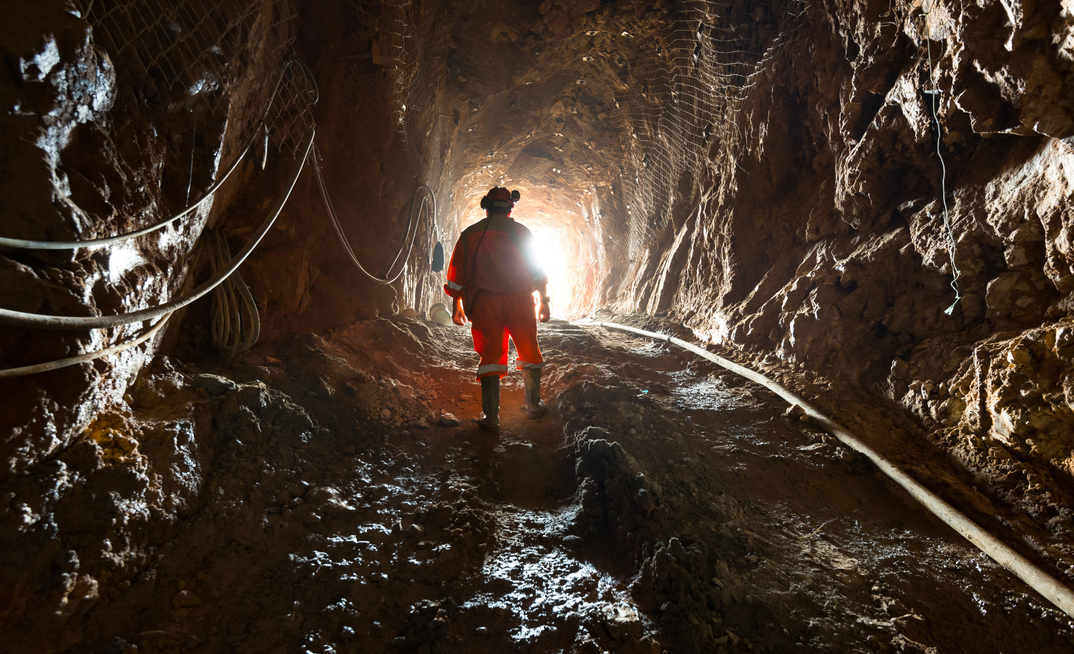As the US prepares to usher in another Trump presidency, the mining industry is watching closely. Topics like the country's China outlook, investment policy and environmental regulation are all expected to have ripple effects for miners and service providers, both in country and out.
Some industry leaders see the possibility of renewed policies aimed at reducing red tape and accelerating project timelines, aligning with former President Trump's pro-business stance.
Gordon Neal, president and chief executive of World Copper, a Canadian resource company focused on its flagship Zonia Copper Oxide Project in central Arizona, believes Trump's focus will likely be on domestic resource development, especially in strategic materials like copper, essential for the US clean energy transition.
"I expect President Trump will work to cut project timelines, allowing miners with US-based projects to begin projects faster," Neal said to Mining Magazine. With the demand for copper rising due to its key role in clean energy, Neal emphasised the strategic importance of the metal in the global economy.
"The United States and China are battling to secure stakes in copper mines around the world and the stakes have never been higher. In a clash of titans, America, and its free-market economy values, competes against the Asian superpower with its stranglehold on copper resources and processing," he observed.
Domestic push
Neal believes that under Trump, domestic copper projects could see increased support, reducing reliance on foreign-controlled resources. "The alternative to geopolitically-friending copper mines and mineral processing is not no mines but Chinese-run mines and minerals processing with lax environmental regulations."
Meanwhile, for those in the lithium sector, Trump's business-friendly policies could bring positive outcomes for capital investments. Hendrik van Alphen, chief executive of Wealth Minerals, expressed optimism about tax and investment incentives that could return with a Trump administration.
"Trump's 2024 presidential win favours lower corporate taxes and capital investment incentives which are critical to attracting investment in mining. Trump's tax policies in his previous term favoured businesses, with provisions that encouraged capital-intensive sectors, including mining, to reinvest in operations," he said.
Van Alphen suggested that these policies could help North American mining projects remain competitive in a global market, attracting the essential funding required for high-stakes resource development.
Strategic industries
For companies focused on defence and strategic metals, Trump's national security policies could provide further impetus for domestic mineral exploration. Patrick Power, chief executive of Lake Winn Resources, pointed out that during Trump's last term, certain minerals were designated as essential for national security, bolstering local mining initiatives.
Lake Winn is a mineral exploration company focused on advancing its fully-owned lithium project in the western Northwest Territories (NWT), near the Yukon Border and gold projects in Manitoba.
"By declaring pivotal strategic minerals as essential for national security during his last term, Trump boosted domestic mining efforts," Power noted. He anticipates a renewed emphasis on securing critical minerals under Trump, especially those related to strategic industries. "Metals critical to defence, the electronics industry and technology were furthered, and I expect he will keep his eye on the critical minerals prize during his next term."
Two-pronged outcome
Thibault Denamiel, Washington-based Fellow at the Centre for Strategic and International Studies (CSIS) adds to this: "I think the effect of the Trump victory are two-fold, and to an extent contradictory. On one hand, a Trump victory likely entails a rollback, in some capacity, of Biden-era programs meant to promote the transition to green technologies which require significant quantities of critical minerals and raw materials," Denamiel explained.
While Trump's policies might slow projected growth in demand for critical minerals tied to green tech, Denamiel noted that "the US' demand for critical minerals and raw materials will likely lessen compared to what was projected — although it will continue to increase significantly overall."
Like many miners, Denamiel also sees a Trump administration's approach as potentially beneficial to domestic extraction and refining. "A Trump administration will likely aim to lower regulatory barriers to entry for extraction and refining processes domestically in an effort to further onshore production capabilities," he said.
Additionally, Denamiel anticipates a shift in trade priorities to secure minerals and materials through partnerships, saying, "A Trump administration will lessen emphasis in environmental and labour concerns in its attempts to secure the US minerals and materials supply chain through trade deals with partner countries that could make up for resources the United States does not have."


























